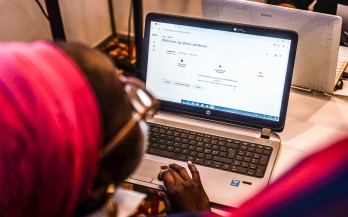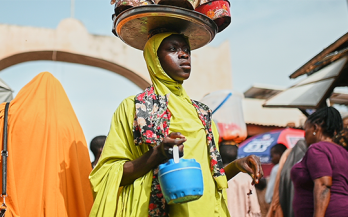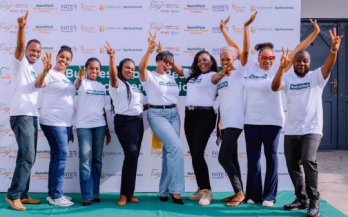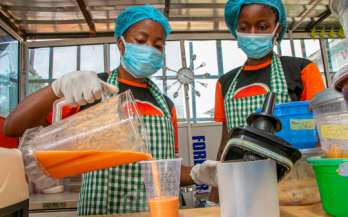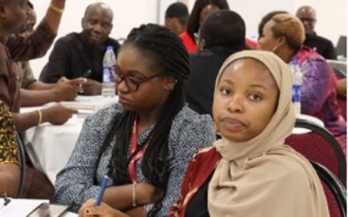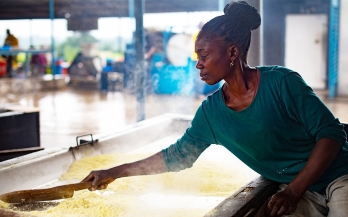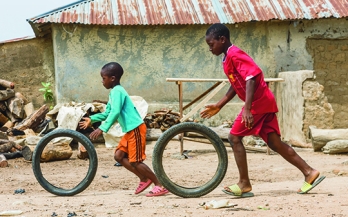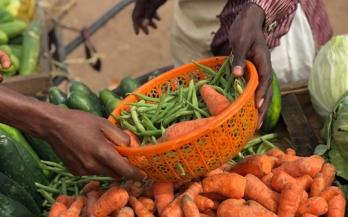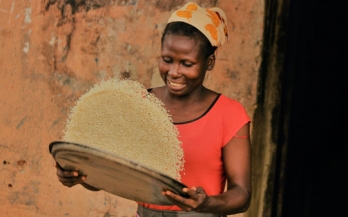Every October, the world comes together to mark World Food Day, a moment to reflect on progress and renew our commitment to building food systems that nourish everyone. The 2025 theme, “Hand in Hand for Better Foods and a Better Future,” speaks to the power of collaboration. At GAIN Nigeria, we see this play out every day in our partnerships across governments, industry, and civil society. It is not just about what we do as an organization it is about what we achieve together. One powerful example of this is the Digital Fortification Quality Traceability Plus platform (DFQT+) platform, now transforming how fortified foods are monitored in Nigeria.
The intersection of climate change and food security took center stage at the recent Nigeria Climate Change Forum, where experts gathered to discuss sustainable solutions for ensuring food and nutrition security amidst growing climate challenges.
Consuming a healthy diet is vital for people’s well-being – to live well, grow, and stay active. Nigeria’s vibrant food systems have the critical job of nourishing Africa’s largest nation – a growing and youthful population that needs to be well-fed to meet its potential.
Since most people get a large portion of their food from the private sector, private-sector companies can play a key role in improving nutrition by bringing more safe and nutritious products to market, in forms that are appealing and affordable to consumers. This is ever more important in Nigeria today, where annual food inflation in December 2023 reached 28% - putting healthy diets beyond the reach of many lower-income consumers.
Sometimes in our workplaces, we disagree with colleagues or a co-worker, and we feel hurt or angry about the situation. Rather than reacting irresponsibly, taking the time to pause, review and reflect on the situation can help us gain more clarity and perspective.
Read our ninth story in the series on The Food Crisis: What's Happening, a collection of work on the current events and the impact communities are seeing on a global scale. The Food Crisis is affecting everyone socially, economically and nutritionally. Michael Ojo and Joyce Akpata discuss newly published dire statistics on Nigeria's poverty index, and how urgent action is needed.
Read our seventh story in the series on The Food Crisis: What's Happening, a collection of work on the current events and the impact communities are seeing on a global scale. The Food Crisis is affecting everyone socially, economically and nutritionally. Joyce Akpata, Head of Policy and Advocacy at GAIN Nigeria, discuss the wide reaching ripple effect the economic crisis will have on Nigeria, affecting the most vulnerable in society, and what actions need immediate attention.
Nigeria is a vast and diverse nation, and Africa’s most populous country. While Nigeria enjoys a rich food culture increasingly recognised around the world, its food and nutrition issues remain significant. These must be overcome to achieve prosperity for all. Home to the second highest population of stunted children under five in the world, Nigeria also faces natural challenges and climate change challenges.
when fortification’s done right, payoffs are large in terms of improved nutritional status, cognition, and productivity – which is why it’s so widely implemented. And wherever it’s implemented, we need to know if it’s working. Ideally, we’d measure impact on reduced nutrient deficiencies or related health outcomes, but this can be difficult for reasons of cost or because of the time taken for fortification programmes to yield measurable impacts. So what do we do instead?
